“I regard it as the foremost task of education to insure the survival of these qualities: an enterprising curiosity, an undefeatable spirit, tenacity in pursuit, readiness for sensible self denial, and above all, compassion.”
-Outward Bound Founder, Kurt Hahn
Imagine You’re An Outdoor Educator
You’ve just finished a trip backpacking and mountaineering in the wilderness of Yosemite National Park, during which you helped students that started as strangers – who had never camped outside before – become a family. With your guidance, your students now know how to survive and thrive in the wilderness, work together through challenges as a team and achieve goals like summiting a mountain peak. Your sense of satisfaction is huge. You share in your students’ successes, the reward of a safe and empowering expedition. It’s hard work and fun—you’ve made a difference in the lives of others.
Outward Bound Schools across the U.S. offer training for those who wish to become outdoor educators. If you’re thinking of working as a guide, leading expeditions for a summer camp, starting a career in outdoor education, or learning more about leadership, consider one of our Outdoor Educator courses.
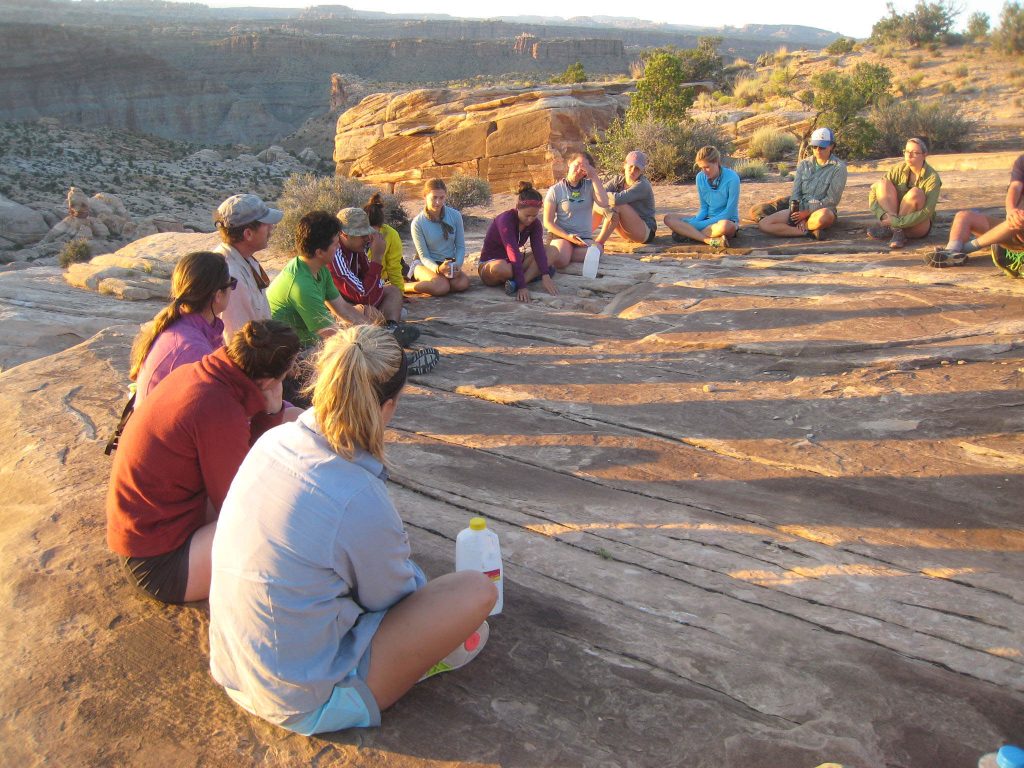
Photo taken on a Southwest Backpacking & Rock Climbing Outdoor Educator Course by Kim Reynolds.
What to Expect on an Outdoor Educator Course
Outward Bound Outdoor Educator courses range from 50-65 days. On these courses you’ll develop a “toolbox” of leadership and technical skills to begin a career as an Instructor or outdoor educator in wilderness environments. The leadership curriculum we teach is based on 50 years of leading expeditions. The ideas we teach through experiential learning are used widely in many successful organizations. In the past, corporate leadership was primarily top-down, with ideas and direction coming from one person (or team) at the top, expected to infiltrate down through the rest of the organization. The processes you’ll learn on a course are now widespread in non-profits and businesses – including situational leadership, brainstorming, shared problem solving, and facilitated decision-making, where many who are involved can offer input and perspectives.
Initially, you’ll experience an Outward Bound Outdoor Educator course from the perspective of a student. Your group will discuss course components, Outward Bound’s teaching methods, philosophy, and the role of the leader.
You’ll master the technical skills of your chosen course, like knot-tying for rock climbing or sailing, and proper paddling techniques. You’ll also learn route-finding, setting up a tarp for shelter, wilderness cooking and how to safely use a camp stove, and first aid.
If you’ve signed up for the Oregon Outdoor Educator Course, for example, you’ll raft whitewater on a 4 to 7-day expedition. And you’ll go beyond the skills needed to navigate. You’ll learn some river hydrology, paddling techniques, how to read the currents, anticipate obstacles, scout rapids, and negotiate technical aspects of the course. The Oregon Outdoor Educator course includes the Wilderness Responder Course, the industry standard medical certification for the field of outdoor education, (including certificates in Wilderness First Responder (WFR), Anaphalaxis, Basic Life Support and CPR).
Just as important are leadership skills. You’ll learn facilitation, group decision-making, problem solving, feedback, and conflict resolution. These are skills that help any group work together effectively, whether as a trip leader at a summer camp, in a non-profit leadership role or in an office setting. As an outdoor educator, you’ll need to know how to guide your students as a team, helping them to discover their strengths and be the catalyst for personal growth.
Outward Bound courses are designed to helps students become independent. In the beginning of an expedition, the Instructor is very visible while they teach new skills. Eventually, the Instructor takes a step back and allows the students to become their own leaders, to develop the confidence to use their skills independently and to lead the group.
Leaders are best
When people barely know that they exist
Not so good when people obey and acclaim them;
Worse when they despise them.
Fail to honor people,
They fail to honor you;
But of a good leader, who talks little,
When their work is done, their aim fulfilled,
The people will all say, ‘We did this ourselves.’
-Lao Tzu, edited
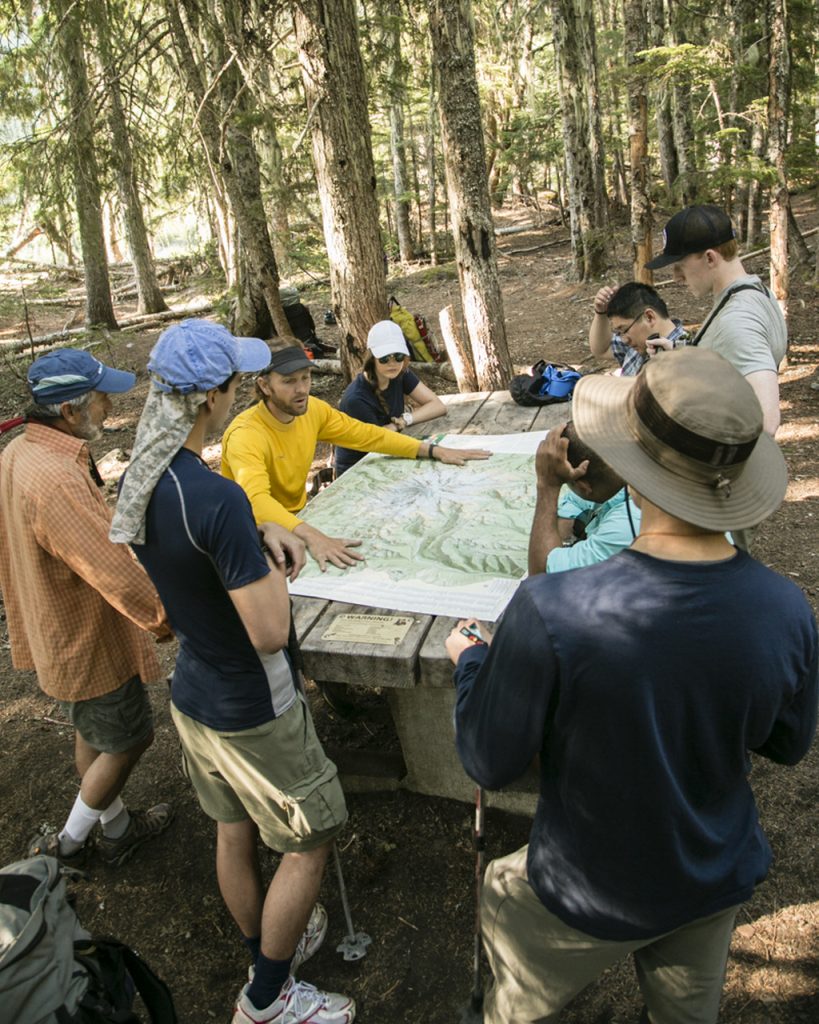
Photo taken on an Oregon Outdoor Educator course by David Moskowitz.
The Skills You Need to be an Outdoor Educator
Situational leadership is a skill outdoor educators develop to help their students move through the stages of group development so they can become a high-performing group. A high-performing group is creative, draws on the strengths of its members, resolves conflict as it arises, shares goals and celebrates when it achieves them. The outdoor educator guides this process along.
The first stage of group development is called Forming. An outdoor educator looks at things like: What does a new group of students need? How will they learn to work together? What leadership style do you need to use as their Instructor, to help them move forward?
As students get to know each other and engage in activities, conflict naturally arises. This stage is called Storming. A skilled leader will help the group acknowledge their conflicts, create a safe space to discuss them and reach resolutions.
Different leadership methods are needed depending on whether the group is faced with a life-threatening emergency or a routine route-finding decision. In the emergency situation, it’s important that someone with appropriate skills and training (medical, for example) take charge. In a route-finding situation, getting the group involved and having many people learn map and compass, gather information, and share in the decision means a better-informed decision. Plus, the individuals involved share responsibility and ownership in it. Groups need different leadership at different stages of their development and in different circumstances.
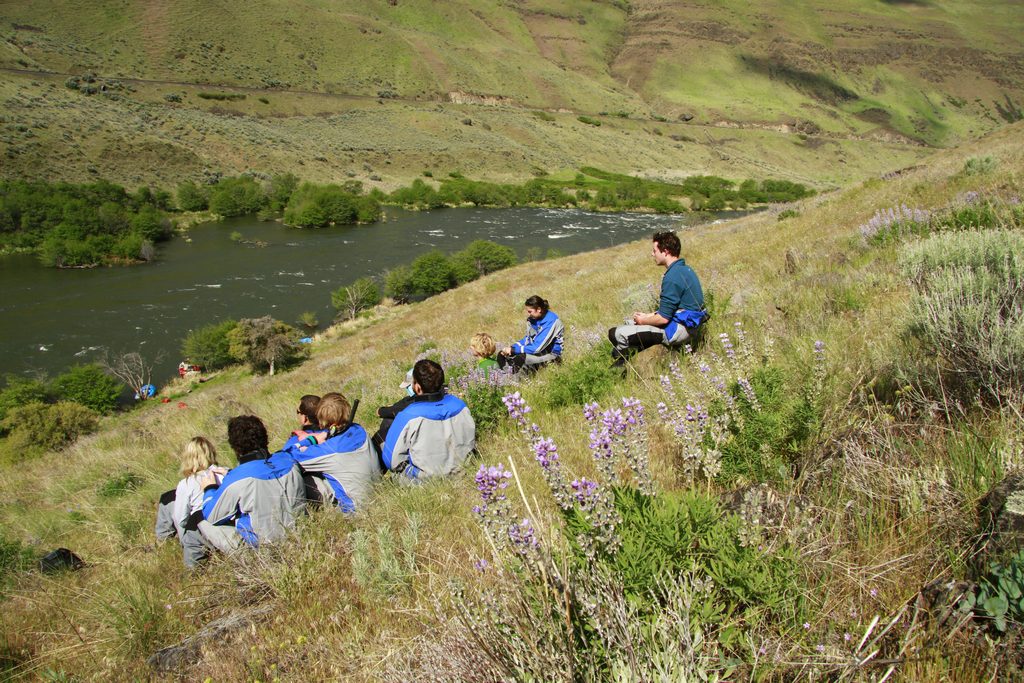
Photo taken on an Oregon Outdoor Educator course by Levi Old.
Which Outdoor Educator Course is Right for You
The canyon country of Utah is the location for the Southwest Backpacking & Rock Climbing Outdoor Educator course. The spectacular and ancient canyon networks offer grand opportunities for backpacking, canyoneering and rock climbing. You’ll hike in unforgettable scenery on lands that Native Americans roamed and lived on over 800 years ago.
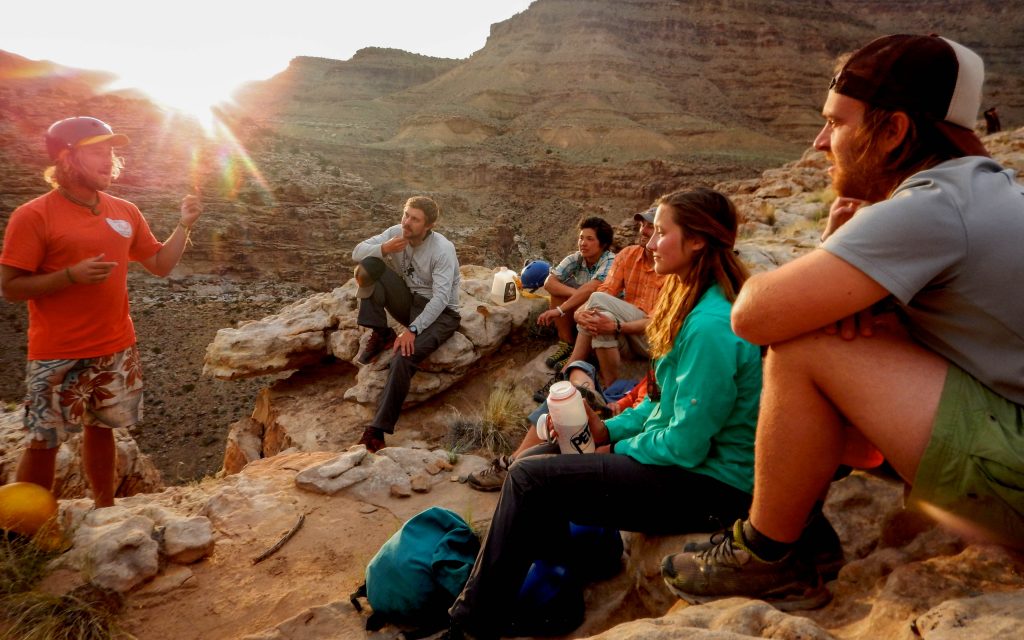
Photo taken on a Southwest Backpacking & Rock Climbing Outdoor Educator by Kelly Crandall.
The Washington Outdoor Educator course begins with sea kayaking off the coast in the San Juan Islands. Mountaineering expeditions explore the Sawtooth Wilderness, Pasayten Wilderness and North Cascades National Park, on the east side of the North Cascades (which usually receive significantly less precipitation than the western coast of Washington).
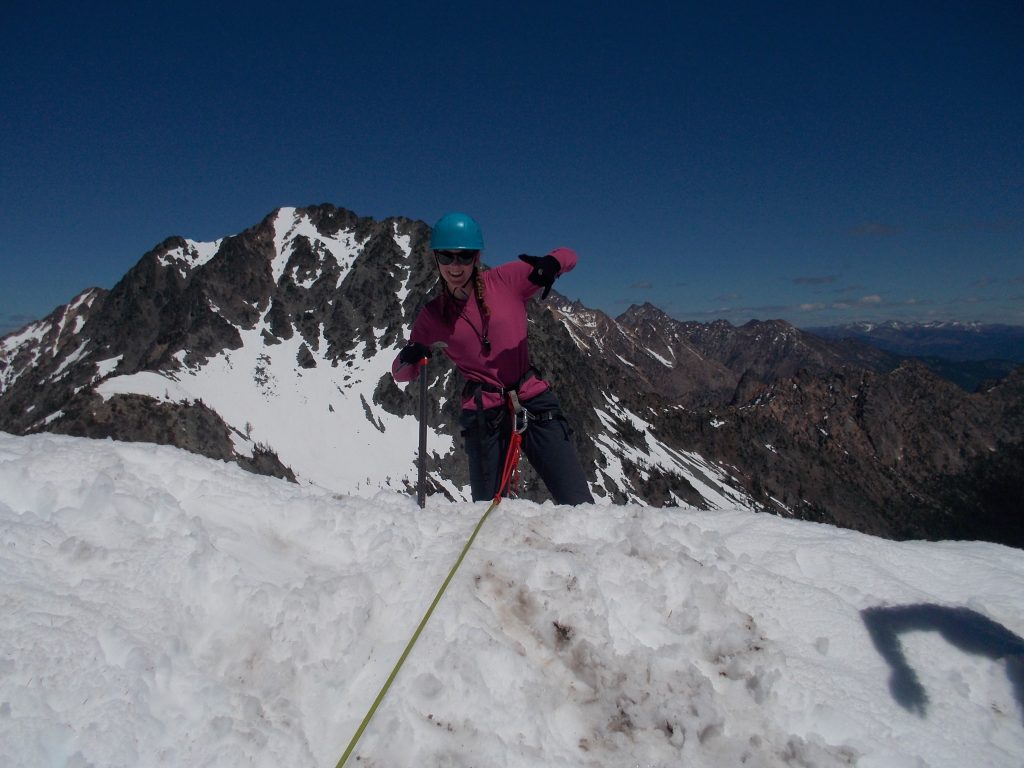
Photo taken on a Washington Outdoor Educator course by Anna Sands.
The Blue Ridge Mountains Outdoor Educator course travels through the Southern Appalachian mountains, where ancient mountains offer tremendous biodiversity, as well as the highest elevations in the East. Local whitewater rivers offer the chance to develop paddling skills, and rock climbing at Linville Gorge includes multi-pitch routes and dramatic scenery.
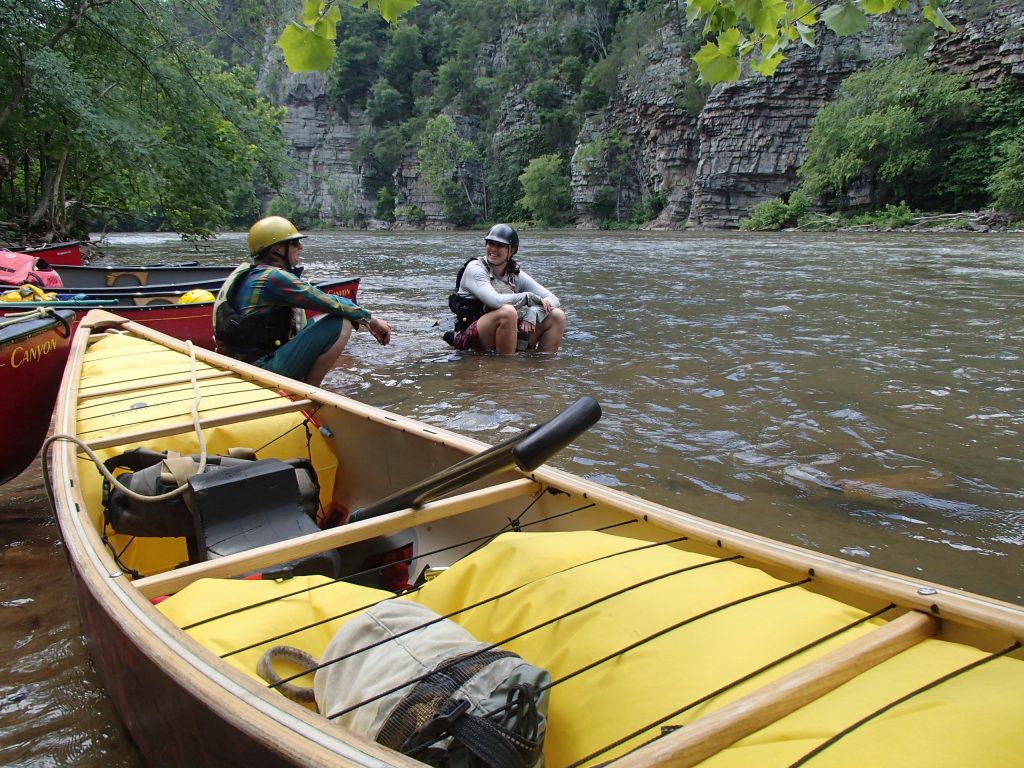
Photo taken on a Blue Ridge Mountains Outdoor Educator course.
On the Yosemite, Joshua Tree & San Francisco Outdoor Educator course, you’ll sharpen backpacking and mountaineering skills in the wilderness of Yosemite National Park and Ansel Adams Wilderness. You’ll hone your rock climbing skills in sunny Joshua Tree National Park, and sea kayak in Point Reyes National Seashore. Finally, you’ll engage in an urban expedition in San Francisco, navigating in a very different environment, as a culminating experience and opportunity to learn about other cultures and working with diverse populations.
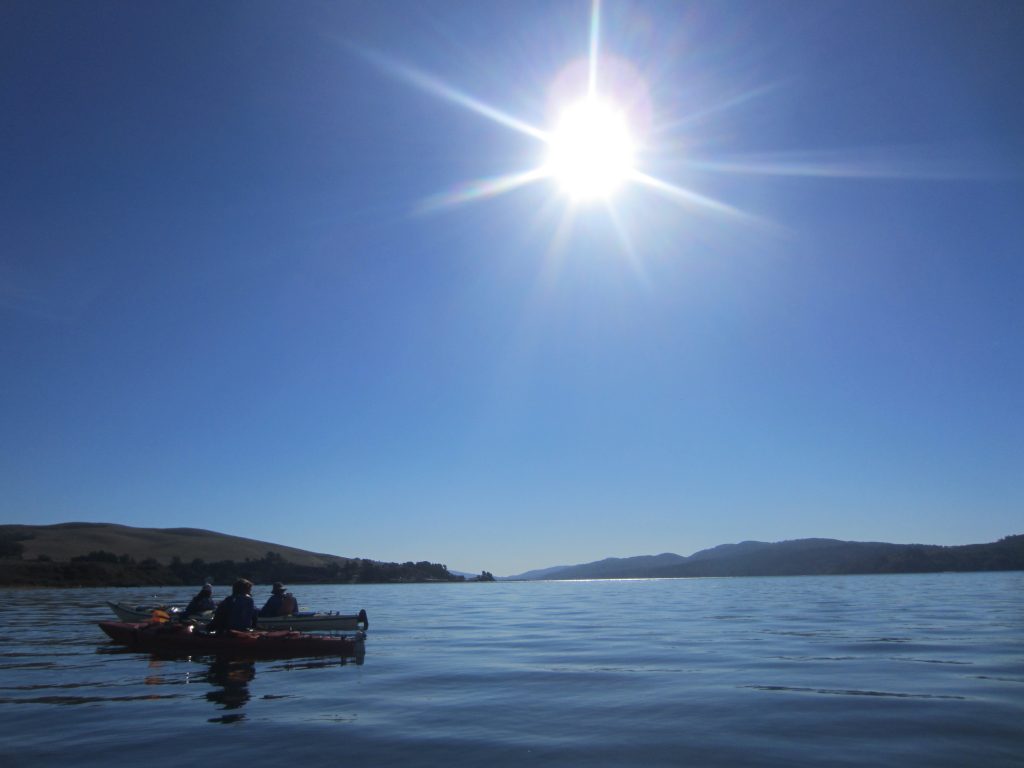
Photo taken on a Yosemite, Joshua Tree & San Francisco Outdoor Educator course.
The Maine Coast & Appalachian Mountain Outdoor Educator course features coastal navigation, sailing and rowing in sail boats off Maine’s coast. Whitewater skills come into play during a canoe expedition on some of Maine’s amazing rivers. Backpacking and rock climbing lead you to explore the woods of Maine and New Hampshire, the northern Appalachian mountains.
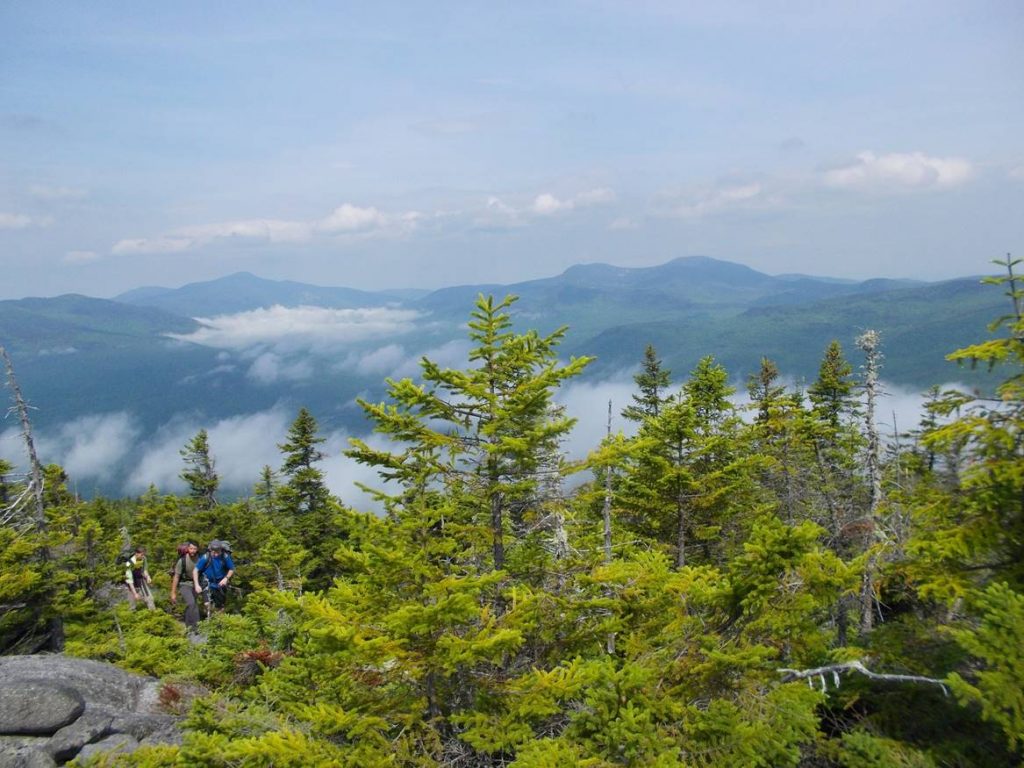
Photo taken on a Maine Coast & Appalachian Mountain Outdoor Educator course.
The Texas Big Bend Outdoor Educator course includes a 12-day down-river expedition on the Rio Grande. You’ll explore mountainous terrain in the Chihuahuan Desert, and backpack in the Chisos Mountains in Big Bend National Park, the eighth largest in the lower 48 states.
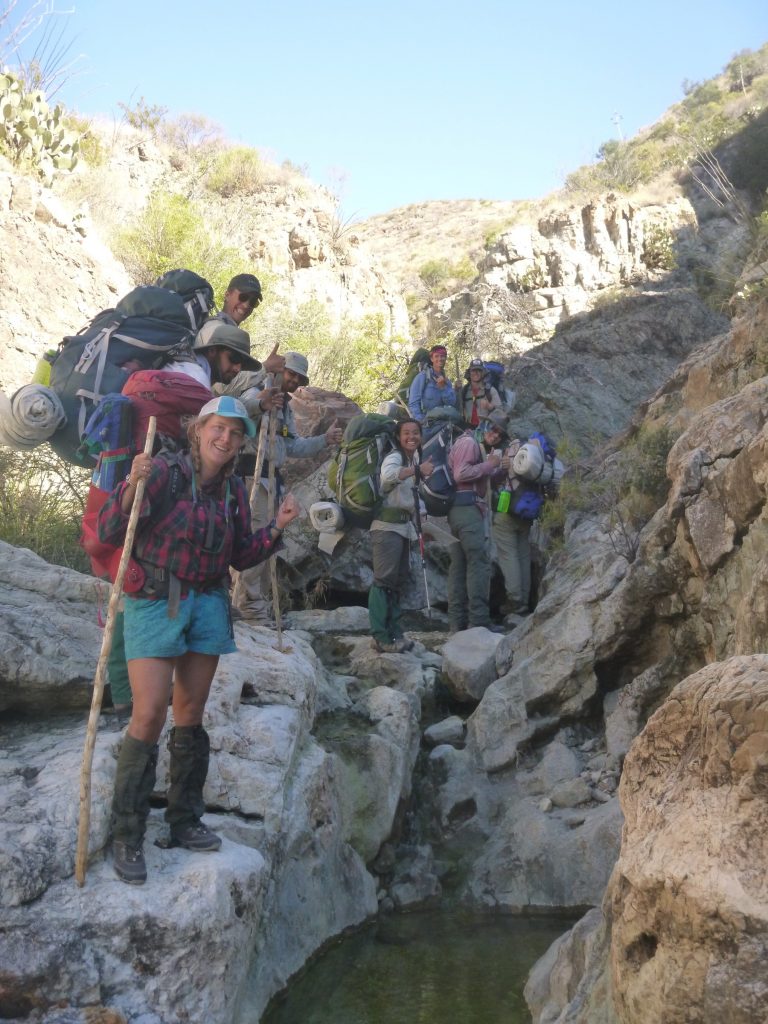
Photo taken on a Texas Big Bend Outdoor Educator course.
Enroll Now in Your Outdoor Educator Course
So there you have it, the lowdown on Outdoor Educator courses. Graduates from these programs serve all over the country as leaders, on wilderness expeditions, guide companies, summer camps, college outing programs, and as Outward Bound Instructors. They also serve in non-profits, business and in a variety of fields. This is the course that gets you started as an outdoor professional, and it’s a strong foundation for a career direction involving leadership and working with groups.
Interested in an Outdoor Educator course? View all the Outdoor Educator courses here.
About the Author
CJ Wilson’s career in outdoor education has taken her from Maine to Minnesota, and from the Sierra Nevada to Patagonia. A long-time Outward Bound Instructor, she writes from her base camp in Asheville NC. When not writing, she might be found working as a ranger in a national park, bicycle touring, or hiking her favorite trails near home.




